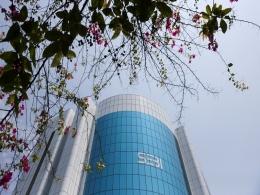Indian stocks won’t return to their pre-COVID-19 levels this year despite a rally in recent months because companies face further difficulties and a market correction is likely, a Reuters poll of equity strategists found.
The benchmark BSE Sensex Index .BSESN has rallied over 50% from a record low hit on March 24, a day before Prime Minister Narendra Modi imposed a strict nationwide lockdown, which ended at the start of June, to try to control the pandemic.
The index is still down around 6% so far this year and is about 8% below its life-high of 42,273.87 on Jan 20.
Nearly two-thirds, or 30 of 46 equity strategists polled, said a significant correction in Indian equities was either likely or very likely over the next three months.
“I expect a correction of 10% plus in the current calendar year at some point,” said Bharat Arora, equity strategist at B&K Securities in Mumbai, citing expectations for poor corporate earnings and economic performance in the previous and the current quarter.
The BSE Sensex was forecast to end 2020 at 39,000, near Tuesday’s close of 38,843.88, the latest Reuters poll taken Aug. 13-25 found. That would be a 5.5% loss for 2020, marking its worst calendar year performance since 2011.
It was predicted to rise to 40,500 by mid-2021, which would still be more than 4% below the pre-pandemic high of 42,273.87.
Asked what would likely drive stocks for the rest of the year, most of those questioned said economic data and corporate earnings rather than the direct impact of the spread of the novel coronavirus.
The virus has infected nearly 3.2 million people in India, where cases are accelerating at the fastest pace in the world.
Asia’s third-largest economy was forecast in the previous quarter to have shrunk 20.0% - the first double-digit contraction since official quarterly data began in the mid-1990s - and no growth for the rest of the year, a separate Reuters poll of economists found.
With business activity and consumer sentiment restrained, Indian companies have reported their most disappointing numbers in the previous quarter in at least three years, with a quick rebound not expected soon.
“There is a lot of demand destruction and after the recent and nascent pent-up demand gets exhausted, there will again be a slowdown. To come back to a pre-COVID-19 scenario the economy will have to tackle lot of issues,” said Neeraj Dhawan, director at Quantum Securities in New Delhi.
The latest poll findings also resonate with widespread criticism of New Delhi’s $266 billion economic rescue package, which does not contain new spending, tax breaks or cash support to revive demand and prevent firms from collapsing.
“Although the government has provided some support to the economy by announcing a fiscal stimulus package, we believe more would be needed to get the economy back on track,” said Ajit Mishra, vice-president of research at Religare Broking Ltd in New Delhi.







